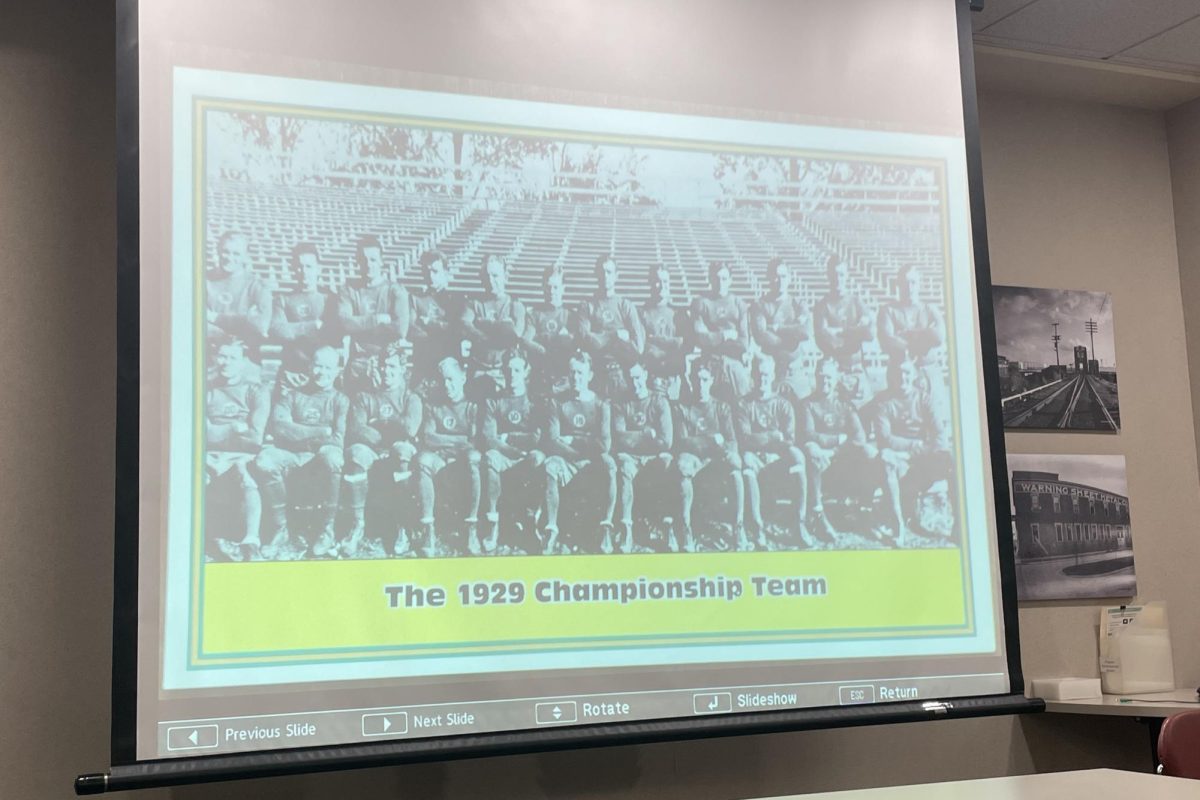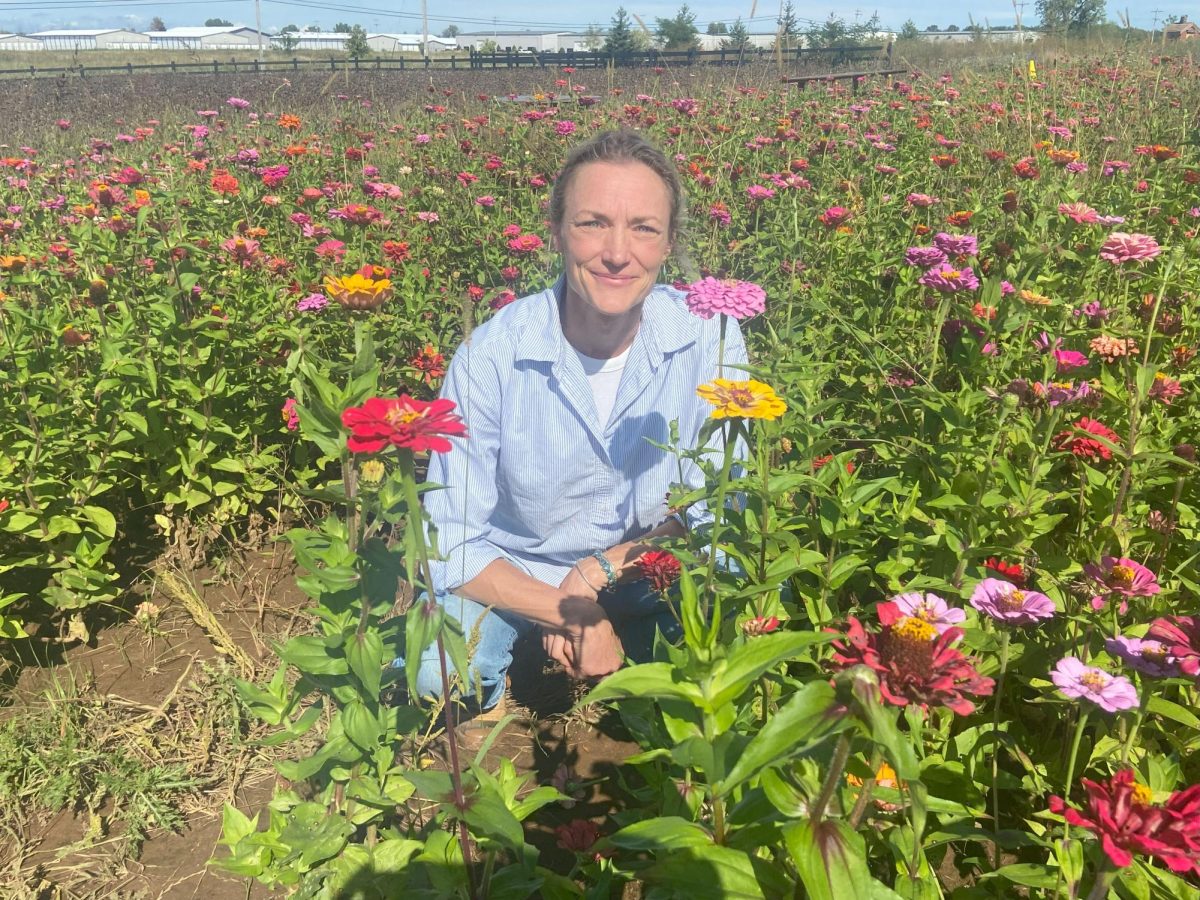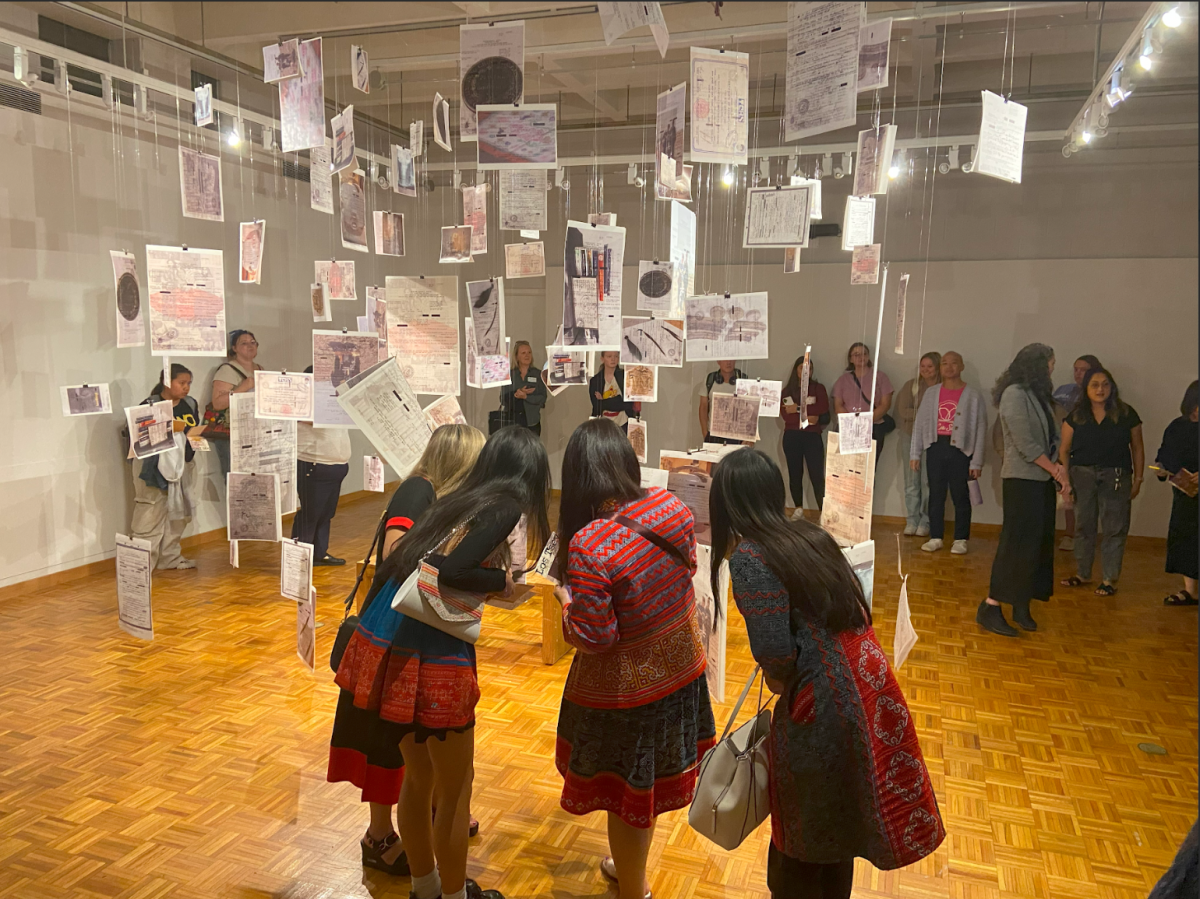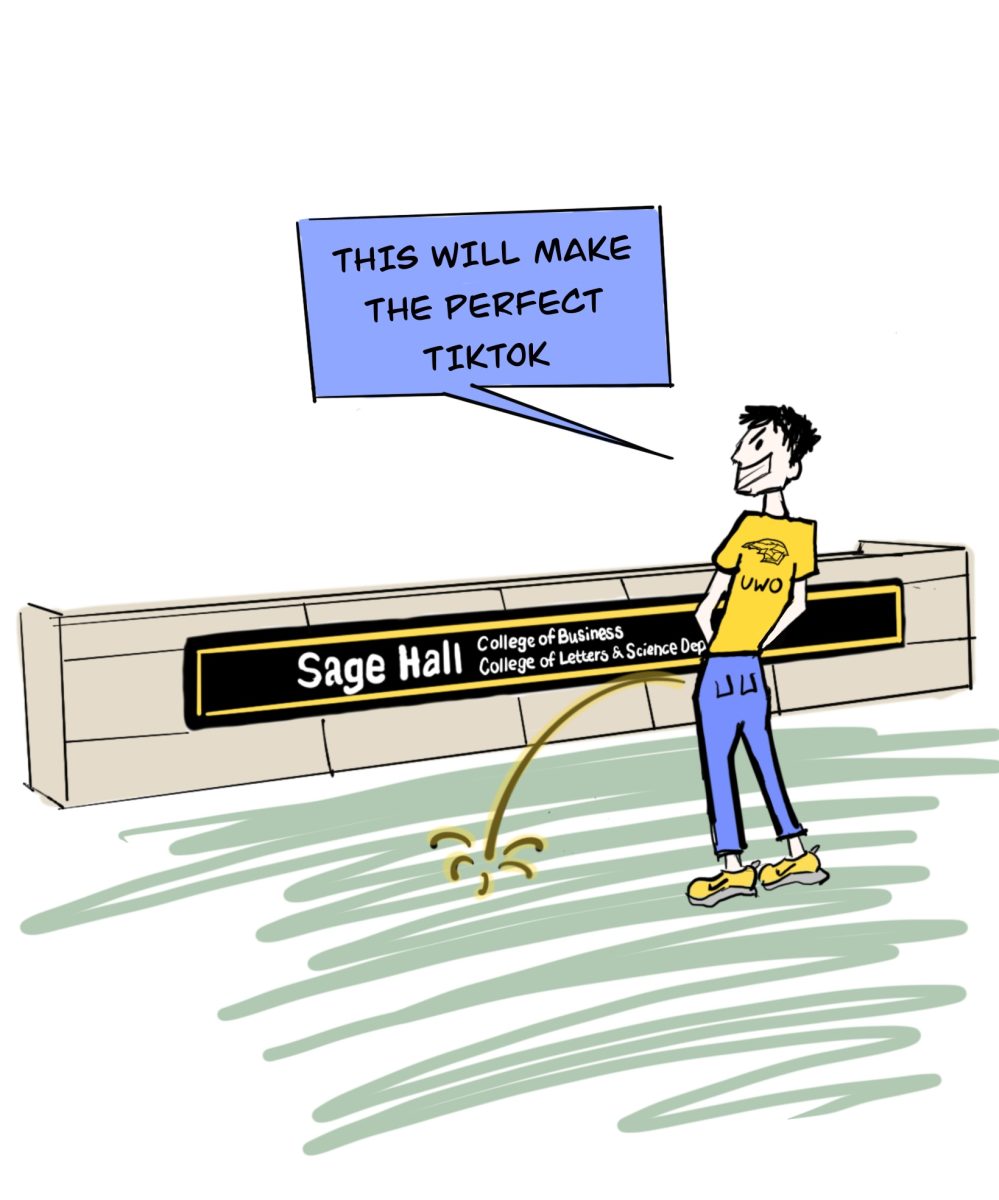
Amber Lusvardi, an assistant political science professor at UW Oshkosh, presented at an event hosted on campus as part of the university’s Women’s and Gender Speaker Series during Women’s History Month, aiming to educate students on the growing political challenges facing the trans community and efforts to protect trans voices.
Helping bring this discussion to campus was Ula Klein, associate professor of English and women’s and gender studies at UW Oshkosh, who organizes the WAGS Speaker Series and plays a key role in fostering conversations on gender and social justice issues on campus.
The event sought to create a space for students to learn about the intersection of gender and politics, focusing on how gender justice issues are disproportionately presented in today’s legislative agendas.
“Since the New Year (January and February) there have been 456 new bills introduced in the United States that look at limiting transgender rights in some way,” Lusvardi said.
These bills target everything from health and gender-affirming care, to sports participation andaccess to public facilities.
“Some of these bills have been in Congress, but the vast majority of these bills are in state legislatures, and this is in contrast to what proportion of the population transgender people make up in the US population,” Lusvardi said. “A small proportion of the overall population identifies as transgender … anywhere between about 0.5% and 1% of the US population identifies as transgender.”
Yet, despite their small numbers, transgender people have been targeted by legislation, often driven by misinformation and political rhetoric that portrays them as a threat to societal norms, Lusvardi said.
“Something that’s very in the news right now are bills that say sex is inherently binary, and that there’s no difference between sex and gender,” Lusvardi said. “So we understand sex is like you’re sex assigned at birth, your sex organs, your genitals and gender being something that is socially constructed and something that exists on a spectrum.”
Due to this preconceived gender binary, the media has increasingly fostered a negative stigma surrounding transgender individuals.
“The media is about what sells … they’re interested in the bottom dollar, they want to make money,” Klein said. “Media companies do what suits them to make money, even if that means painting transgender people as sexualized or represented as predators.”
This profit-driven portrayal in the media impacts not only public opinion but also the personal experiences of those with close ties to the LGBTQ+ community.
UWO sophomore Abigail Slieff-Vogt attended this event for class but previously had personal experience with the topic, growing up with two dads as well as having transgender friends.
“People in the government don’t think of trans people as people; they think of them as concepts and treat them like that,” Slieff-Vogt said. “I would hope people take from this to do their own research and find out more about what they don’t know.”
People, including children and transgender individuals, often go unheard and lack a platform to voice their experiences.
“How do we advocate for the trans [community] when they are such a small percent of the population, and so few people really can identify,” Lusvardi said. “Social movements are about giving a voice to people who don’t have voices.”
Despite the challenges, the fight for transgender rights is not without progress, even if it’s slow and often frustrating, Lusvardi said.
“Progress is not linear,” Lusvardi said. “That’s the solidarity piece. Unless everyone is free, I am not free.”








